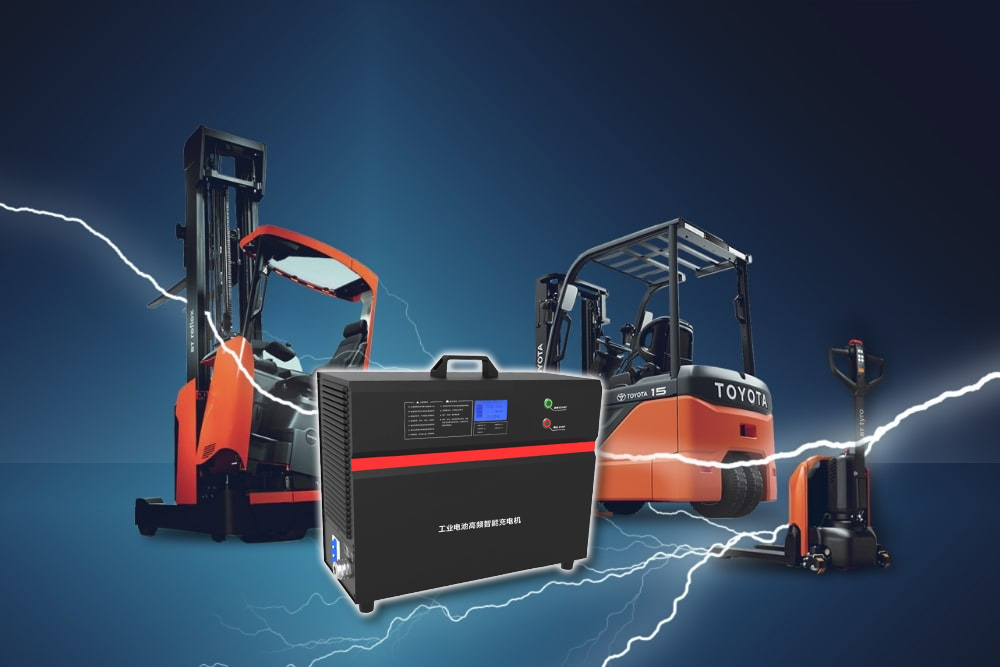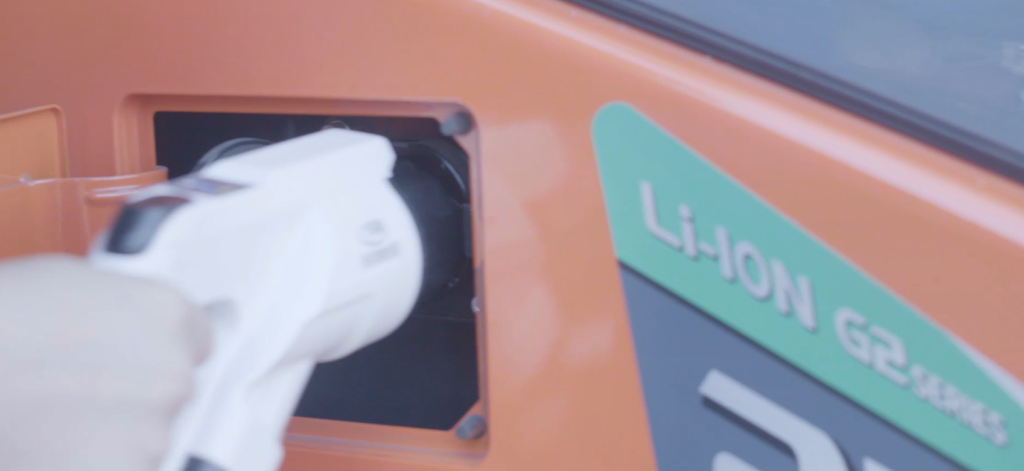
When it comes to powering your electric vehicles (EVs) and industrial equipment, lithium-ion batteries and chargers provide reliable, efficient, and safe energy solutions. Whether you're operating electric forklifts, aerial work platforms, or even RVs, understanding how to properly charge your lithium-ion battery can enhance performance and lifespan. In this FAQ, we answer the most common questions about lithium-ion battery chargers.

What is a Lithium-ion Battery Charger?
A lithium-ion battery charger is a device specifically designed to safely and efficiently charge lithium-ion batteries. These chargers use advanced technology to optimize the charging process, ensuring longer battery life and faster charging times.
Lithium-ion chargers are compatible with a wide range of applications, including electric forklifts, golf carts, high-altitude platforms, ground support equipment, RVs, and more. They come with built-in safety features to prevent overcharging, overheating, and short-circuiting.
Why Should I Use the Right Charger for My Lithium-ion Battery?
Using the correct charger for your lithium-ion battery ensures maximum compatibility, efficiency, and safety. Here are the main benefits:
- Optimized Charging: Proper chargers are designed to work seamlessly with specific lithium-ion batteries, optimizing the charging cycle for better performance.
- Longer Battery Life: Proper charging reduces wear and tear, extending the lifespan of your battery.
- Faster Charging: Advanced chargers use technology to shorten charging times, keeping your equipment up and running.
How Long Does It Take to Fully Charge a Lithium-ion Battery?
The time it takes to charge a lithium-ion battery depends on the battery’s size, the charger’s output, and the battery's current charge level. On average, a lithium-ion battery can be fully charged in 3 to 5 hours, although some models may charge faster or slower based on specific needs.
It's always best to check the battery specifications for the most accurate charging times.
How Can I Tell When My Lithium-ion Battery is Fully Charged?
Lithium-ion chargers come with built-in indicators that provide clear visual cues when charging is complete. Typically, a green light will signal that the battery is fully charged, while a red light indicates that charging is still in progress. Refer to your charger manual for specific LED indicator details.
Can I Overcharge My Lithium-ion Battery?
No, lithium-ion batteries are equipped with safety mechanisms to prevent overcharging. Modern lithium-ion batteries include built-in protection circuits that automatically stop charging once the battery reaches full capacity. However, it’s always advisable to unplug the charger once the battery is fully charged to maximize long-term battery health.
How Should I Maintain My Lithium-ion Battery and Charger?
To get the most out of your lithium-ion battery and charger, follow these maintenance tips:
- Keep the charger clean: Regularly inspect the charger for dust and debris, which can affect performance.
- Store batteries properly: When not in use, store the battery in a cool, dry place. Avoid exposure to extreme temperatures.
- Charge regularly: Avoid deep discharges by keeping the battery charged above 20% when not in use.
- Monitor battery health: If your battery shows signs of wear or doesn’t hold a charge as well, it may be time for a replacement.
Is It Safe to Use Lithium-ion Battery Chargers in Harsh Environments?
Yes, lithium-ion chargers are built to withstand various operating conditions. Many chargers are IP-rated for protection against dust and water, making them ideal for harsh environments such as warehouses, outdoor use, or industrial areas.
However, always follow the manufacturer’s recommendations for optimal operating conditions to avoid damage and maintain charger efficiency.
Can I Use a Lithium-ion Charger with Other Brands of Lithium-ion Batteries?
While chargers are optimized for specific lithium-ion batteries, they may work with other brands’ batteries that have the same voltage and charging specifications. However, using a non-compatible battery with a charger could void the warranty and potentially damage the battery. It’s best to use the charger designed specifically for your battery.

What Should I Do If My Lithium-ion Battery Charger is Not Working?
If your battery charger isn’t working properly, try the following steps:
- Check the power source: Ensure that the charger is properly plugged in and receiving power.
- Inspect for damage: Look for any visible signs of wear or damage on the charger or cables.
- Reset the charger: Some chargers have a reset button that may resolve minor issues.
- Consult the manual: Review the troubleshooting section of your charger manual for specific guidance.
If the issue persists, contact customer support for further assistance.
Conclusion: Maximize the Performance of Your Lithium-ion Battery
Properly charging and maintaining your lithium-ion battery with the right charger is essential to ensure maximum performance, safety, and longevity. By following the guidelines in this FAQ, you can keep your battery in peak condition and enjoy reliable power for your electric vehicles and industrial equipment. If you have any further questions or need support, don't hesitate to reach out to customer service.
For more information on lithium-ion batteries and chargers, visit our website.
https://www.spider-way.com/lithium-ion-battery-charger-faq-everything-you-need-to-know/?_unique_id=67e6883c9e1ab
Comments
Post a Comment